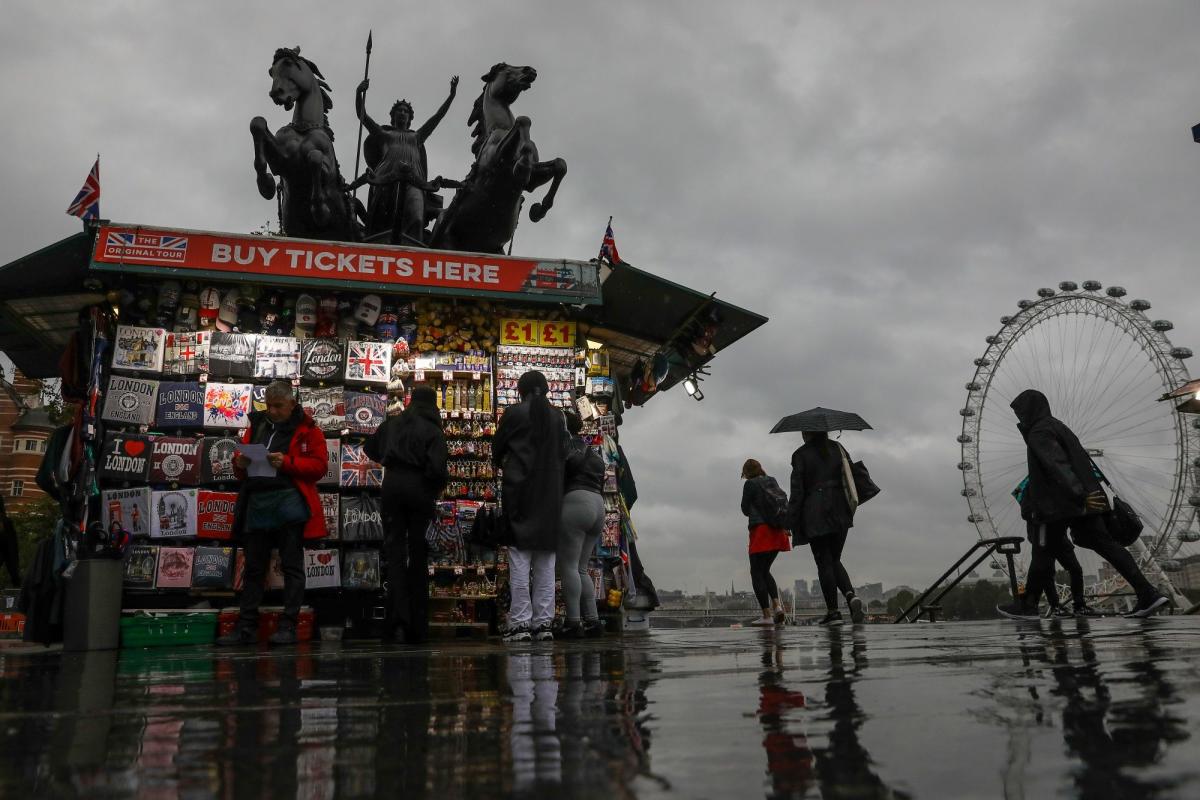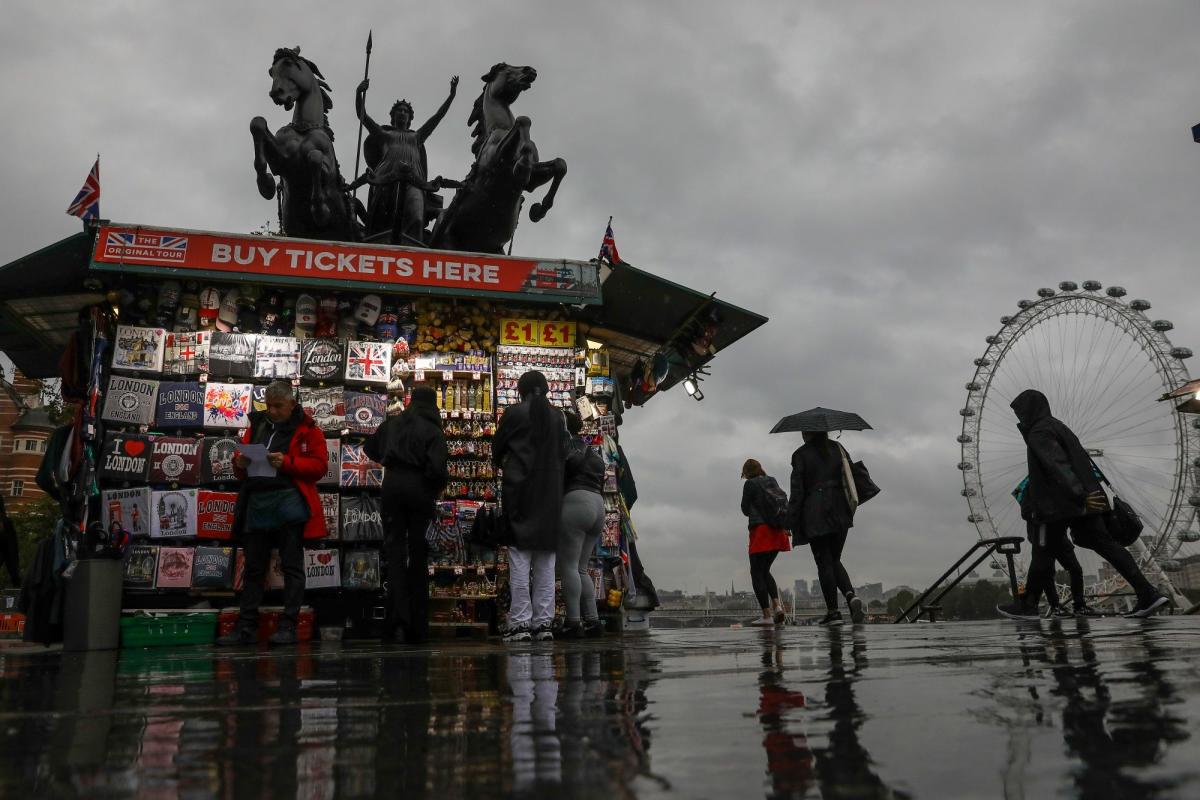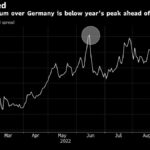
(Bloomberg) —
Most Read from Bloomberg
With new UK Prime Minister Liz Truss facing a storm over her plans for the economy, the pound in freefall and her Conservative Party trailing in opinion polls, confidence among her opponents ordinarily might be as high as energy prices.
But as Labour leader Keir Starmer prepares to assert himself as premier-in-waiting, the pressure is also on him not to squander the moment as he starts the clock on his campaign for power at this week’s Labour conference in Liverpool, northwest England.
Starmer’s inner circle believes Truss has set the stage for him nicely. On Friday, Chancellor of the Exchequer Kwasi Kwarteng announced the biggest tax giveaway in 50 years, benefitting the rich more than the poorer households that Labour promises to champion.
He was lambasted as irresponsible by groups not necessarily known for being in sync with one another — investors, economists and anti-poverty campaigners. The pound tumbled and government bonds staged their biggest ever one-day selloff. As a Starmer aide put it: the market has spoken.
It hands Labour a chance to present itself as the fiscally responsible party versus the profligate Conservatives — a reversal of the stereotypes of old. That would mean arguing against the tax cuts, but Starmer could make the case that investing in public services is vital when inflation is close to double digits.
He needs to up the ante fast, according to party insiders. The next election is expected in 2024, though it could come sooner if Truss’s plan fails.
“It should provide a real opportunity for Labour, however my worry is that it’s also a bold and clear statement: ‘We’re going for growth,’” said former Home Secretary Jacqui Smith of Truss’s tax plans. “And I’m not sure Labour yet has such a clear message.”
The challenge is to overcome the tricky electoral math by setting out the kind of fresh vision that last won the party an election, Tony Blair’s third straight victory in 2005. Some in Labour caution that Truss’s pro-market ideology also has its allure even as the UK heads deeper into an economic quagmire.
Behind the scenes, Labour members of Parliament are agitating for Starmer to make his mark with some simple, catchy policies. Truss’s tax cuts could help. Anti-poverty group The Resolution Foundation calculated that someone earning £200,000 ($218,520) will gain £5,220 a year while those earning £20,000 will get £157.
At Labour’s four-day conference, Starmer, 60, will seek to hammer home his message that while economic growth is crucial, it must be felt by poorer households. This is the distinction he will make repeatedly, according to people familiar with this thinking: growing the economy to chalk up notches on a spreadsheet is pointless if ordinary Britons don’t feel the benefit.
While the economy is the number one focus of the conference, Starmer’s team wants to also turn the spotlight on “bread and butter” issues like health, education and crime. That’s crucial, they believe, at a time when questions are being raised about the funding of public services given rising borrowing costs and now the government’s energy bill subsidy and tax giveaway.
His core speech has been brought forward a day to Tuesday to free him up on the final day of the conference, according to aides. A media blitz is being planned to make sure the leader is on the radars of voters, not just the party faithful.
“This conference is probably going to be the big pivot moment where Labour shifts away from just being an opposition party that’s years away from a general election, to an opposition party that’s really focused on setting out an alternative vision for Britain,” said Chris Curtis, head of political polling at Opinium.
Labour has enjoyed a comfortable poll lead over the Tories for most of 2022. Opinium’s latest survey, after Truss took office, put the party ahead by five points. Crucially, Labour has also been leading on the question of which is the best party to manage the economy.
That matters, Curtis said, because the Conservatives have traditionally won elections based on their stewardship of the economy. Blair’s landslide that won Labour power in 1997 followed his party’s ditching of policies to put some industries back in government control, as well as cozying up the City of London.
Still, it’s not clear how Truss, 47, is going to land with the public. She’s only been in power since Sept. 6, and the first two weeks of her premiership saw politics put on hold after the death of Queen Elizabeth II.
Smith, who co-presents the political podcast “For The Many,” said Labour must now seize the chance this week to elaborate on its own plans to ease the cost of living. That’s been lacking in recent weeks, she said, even though Labour had been calling for more state aid for energy bills long before Truss announced a package to cap prices for households.
“There might have been a bit of a lost opportunity to make some news over August,” said Smith. “And that was pre Truss becoming prime minister, so there was a vacuum and I’m not quite sure we filled it in the way we could have done.”
The Conservatives have been in power since 2010, and victory next time around would be the first time they’d have won a fifth straight general election for nearly two centuries.
Yet the math for Labour is formidable, not least because it lost Scotland to the pro-independence Scottish National Party in 2015. The party would need to to win a landslide on the scale of Blair in 1997 in order to win an outright majority of one in the House of Commons. Far more likely is a coalition or looser deal with the Liberal Democrats, though Starmer ruled out any “arrangement” with them in a July interview with Bloomberg.
Starmer has faced criticism over his public persona, particularly opposite Truss’s showman predecessor Boris Johnson. Allies of Starmer, however, defend his unflashy personality. They believe the former director of public prosecutions is more suited to the job of statesman than tub-thumping opposition leader.
“He still has to prove to the voters that he’s strong enough for the top job and he’s got some way to go,” Curtis said. That’s partly about presentation, he said, “but a lot of that is about Labour putting forward a strong enough vision for the country.”
Most Read from Bloomberg Businessweek
©2022 Bloomberg L.P.




